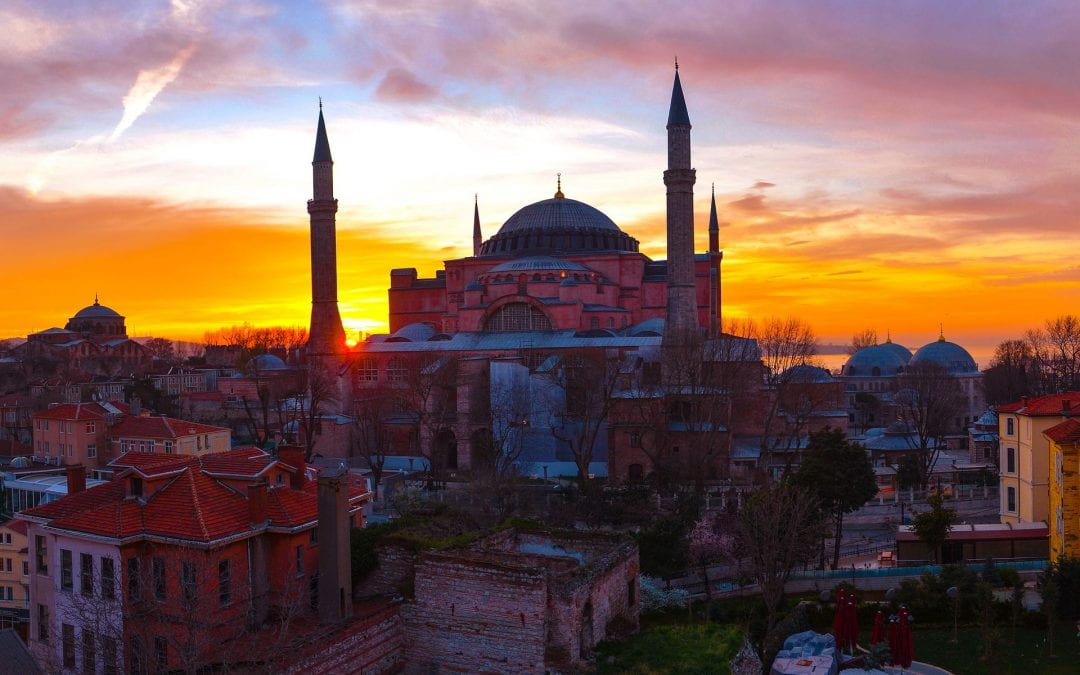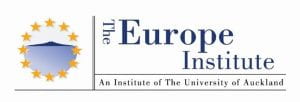By Ayca Arkilic
Looming economic problems have not prevented Ankara from showcasing its soft power and engaging in “corona diplomacy.”
Turkey announced its first case of coronavirus on 11 March 2020. According to the Turkish Ministry of Health, as of 25 May 2020, Turkey has 156,827 confirmed cases and 4,340 casualties due to the COVID-19 pandemic. Even though Turkey is among the countries with the fastest infection rates and highest confirmed cases, it has conducted over 1.8 million tests and has a strikingly lower death rate compared to many European countries and the USA. “The number of recovered patients in Turkey in the past 24 hours reached twice that of newly diagnosed patients,” Health Minister Fahrettin Koca reported in a press conference in Ankara in early May. “The coronavirus death rate in Turkey dropped for intubated patients from 74 percent to 14 percent, for intensive care patients from 58 percent to 10 percent,” he added. While some sources, such as the Financial Times, have warned that Turkey’s fatalities may be 25 per cent higher than official figures, they have confirmed that Turkey indeed has a much lower death rate compared to other countries, with the number of casualties on steady decline every day.
Turkey’s success in preventing casualties can be explained by its young population. The median age in Turkey is 31.5 years, compared to Italy’s 47.3 years and Spain’s 44.9 years. While the elderly are still at risk, Turkey’s exceptionally high percentage of low-risk young people has helped the country in its fight against the virus. Another key factor is the groundbreaking health care reforms the country has undertaken since the enactment of the General Health Insurance Scheme Law in 2006. The healthcare reforms in Turkey are among the most successful of middle-income countries undergoing similar reforms. Midway between 2000 and 2010, the healthcare system was fragmented, exclusionary, ineffective, and received a smaller share of the state budget. Over the years, Turkey has made its system more accessible and affordable by building many hospitals, increasing the number of healthcare staff, and championing universal healthcare. According to the World Bank, by 2012, 98 percent of Turkish citizens gained access to healthcare, infant mortality rates halved, and life expectancy rose to 74 years.
These reforms have also allowed the country to ramp up its intensive care unit (ICU) beds. Today the country has a higher ICU bed capacity (46 per 100.000 people) than that of most European countries (Germany: 29.2), the US (34.7), and China (3.6). In their Institut Montaigne report, political scientists Evren Balta and Soli Özel have pointed out that “the answer lies in the privatization of the health sector. Almost 60 percent of the intensive care beds are in private hospitals. Intensive care services are the most expensive medical service, the costs of which services are covered by the state insurance system if the patient cannot afford their treatment (…) Private hospitals were abusing the system by unnecessarily and extensively putting the patients in ICUs and charging the public for that. But what could be seen as an investment strategy feeding corruption ironically helped Turkey in delivering effective care to COVID-19 patients.”
While the government has been criticised due to its failure to stop pilgrims returning from their umrah in Saudi Arabia, the decision to block planes to and from China as early as 3 February has also allowed Turkish policy-makers to gain a significant advantage over the pandemic. A partial curfew aimed at citizens under the age of 20 and above 65, the limitation of large gatherings, the closure of schools, a four-day curfew across 31 cities, and the provision of five free masks per week are other policies that have made a positive difference. Turkey has also vowed to build two brand new hospitals to serve at least 2,000 patients at Istanbul’s airports and has built a strong social solidarity network. House-bound senior citizens can now call the police, gendarmerie, and disaster relief agencies and other volunteers through the “Open Door” call centers to request the delivery of groceries, food, and even pension payments.
Despite these achievements, the Turkish economy has been hit hard by the pandemic. Turkey’s already fragile economy, undermined by external debt, dwindling foreign reserves, and growing unemployment rates, has placed the country’s recovery prospects in a precarious situation. The tourism sector’s future is particularly bleak. Turkey is the sixth most visited country in the world, its tourism industry accounting for 12 percent of the economy. Anticipating that some 2.5 million people are expected to lose their jobs between April and September only in this industry, Turkey has announced a $15.5 billion stimulus recovery package and launched a nation-wide voluntary donation campaign to enhance solidarity in combatting the coronavirus. Turkey is also aiming to boost its tourism income with a new initiative aimed at certifying tourist attractions, such as restaurants, hotels, museums, and historical landmarks, as ‘coronavirus-free’ once the ongoing pandemic slows down.
Looming economic problems have not prevented Ankara from showcasing its soft power and engaging in “corona diplomacy.” According to officials, Turkey has received requests for masks and other medical equipment from more than 100 countries. It has shipped medical aid to 53 countries, including the US, the UK, China, Iran, Colombia, Afghanistan, Pakistan, Iraq, Qatar, Palestine, and many countries in Africa and the Balkans, ranking third worldwide in the provision of medical supplies. Turkey has been using the pandemic as an opportunity to improve diplomatic relations with its regional rivals Israel and Armenia as well. Turkish officials have sent medical equipment to Israel and facilitated the return of around 100 Armenians to their homeland via Georgia (the Turkish-Armenian border has been sealed since 1993).
Turkey has also delivered 450.000 masks to Spain and Italy, a step taken to bolster Turkey’s role within NATO. NATO Secretary General Jens Stoltenberg welcomed this gesture as an example of “NATO solidarity in action”: “Proud to see NATO Allies supporting each other through our disaster relief center.” In his letter sent to Italian Prime Minister Giuseppe Conte and Spanish Prime Minister Pedro Sánchez Pérez-Castejón, Turkish President Recep Tayyip Erdoğan criticised the EU for not coming to their rescue: “We are supplying medical aid to your country today with an aircraft from Turkish Air Forces in response to your call for assistance through NATO’s Euro-Atlantic Disaster Response Coordination Center. We use every means available to make it easier to export medical supplies you need from our country in an environment even when the European Union stands in the way.” Erdoğan’s spokesman İbrahim Kalın emphasised that Turkey was the first country in NATO to send aid to fellow NATO members Spain and Italy. In Kalın’s view, Turkey’s medical aid sends a strong signal about Turkey’s EU candidacy status as well: “Turkey’s candidacy for the European Union is good for Turkey, but it’s also good for Europe. In fact, this pandemic has proved us right,” he concluded.
Turkey’s “corona diplomacy” has manifested itself in its engagement with its diaspora as well. According to the Ministry of Foreign Affairs, there are 6.5 million Turks living abroad, of whom 5.5 million live in Western Europe. Since the outbreak of the pandemic, Turkey organised a swift transfer of three groups of diaspora Turks back to the homeland: citizens on temporary visas, citizens with permanent residencies, and citizens that died due to COVID-19. By 27 April, around 40,000 Turks living abroad had been transferred back from 75 countries, according to Minister of Foreign Affairs Mevlüt Çavuşoğlu. An interesting case in point was the evacuation of Emrullah Gülüşken, a Turkish-origin immigrant living in Sweden. Gülüşken’s daughter Leyla asked for help from Turkey on social media, claiming that her father was refused treatment at a Swedish hospital despite his worsening symptoms. “Dear Leyla, we have heard your voice…Our air ambulance is taking off at 6 am. We are coming to Sweden,” announced Health Minister Koca on Twitter, and later that day Gülüşken and his three daughters were flown to Ankara.
Moreover, Turkey has introduced new programmes and services to address the needs of the Turkish diaspora. These include the creation of hotlines for emergency situations, the deepening of communication between Turkey’s main diaspora organisation the Presidency for Turks Abroad and Related Communities (YTB) and Turkish diaspora organisations, regular COVID-19 updates from Turkish consulates, the improvement of social media channels, the digitalisation of the diaspora engagement tools, and the establishment of new funding and donation programmes for those affected by the pandemic, such as the “Diaspora COVID-19 Program for Support and Cooperation.” Turkey’s other diaspora institutions, such as the Yunus Emre Institute, has also hosted a conference on “Humanitarian Diplomacy, Soft Power and COVID-19” and joined forces with the YTB to establish workshops on mask and medical uniform production in Europe.
The pandemic has allowed Turkish President Erdoğan to reinforce his political presence not only abroad but also at home. A survey conducted by the Ankara-based polling company MetroPoll in late March showed that Erdoğan’s domestic approval ratings experienced an unprecedented rise, reaching 55.8 percent, the highest since the failed coup attempt against his government in 2016. Turkey’s response to the crisis has also bolstered its role as a leading “humanitarian” actor in the world and highlighted its neo-Ottoman ambitions, as evidenced by its special attention paid to former Ottoman lands throughout the crisis.
Yet time will show whether Turkey will maintain its strong position if an economic recession hits the county in the following months, and the health crisis affecting Turkey’s more than five million refugees, asylum seekers, and irregular migrants living under precarious conditions deepens. The opposition’s growing criticisms that Turkey is helping developed countries while the country itself is suffering from a shortage of medical supplies, and the UK’s recent claims that all 400,000 items of personal protective equipment (PPE) flown from Turkey fail UK health standards, are also likely to pose a serious challenge to Turkey’s economic and humanitarian outreach efforts.
For more information on COVID-19, head to the Ministry of Health website.
Ayca Arkilic is a Lecturer in Political Science and International Relations at Victoria University. Ayca’s work focuses on state-diaspora relations, Turkish politics, and religion and politics.
This article is published as part of a series commissioned by the Europe Institute at the University of Auckland.
For more on the Europe Institute click here.
Disclaimer: The ideas expressed in this article reflect the author’s views and not necessarily the views of The Big Q.
You might also like:
Turkey’s offensive: A ceasefire, or a bid for old territory?


